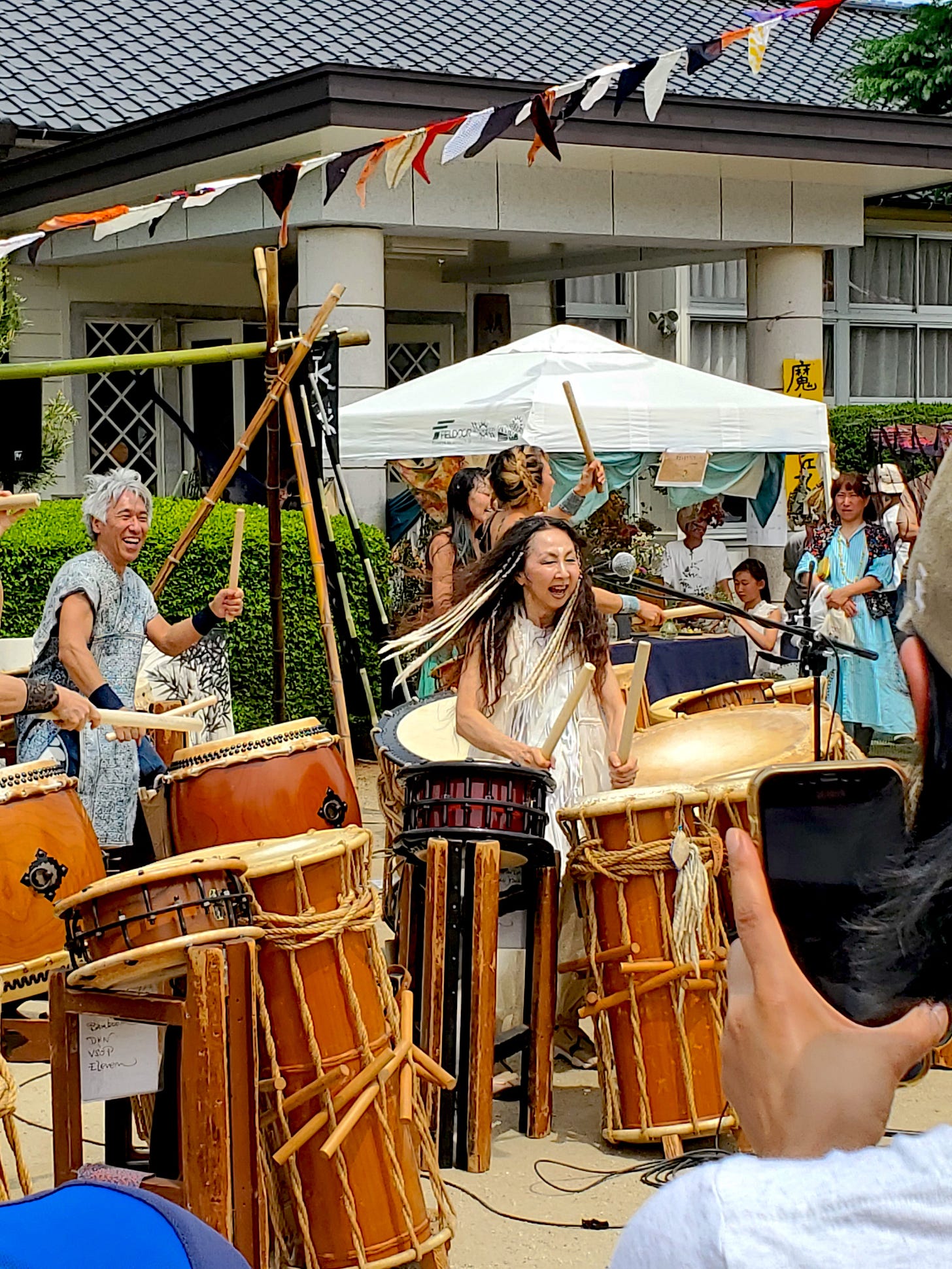*I am a native English speaker purely speaking about my own experiences and thoughts. Sometimes, I use strange words and phrases. If you are reading this through AI translation, it may not be correct. Please ask if you have any questions.*
*Click on the photo to see the full image*
*If reading this via email, you can read previous posts on the actual Substack website .*
Hi! First some updates: KAOLY SAN IS COMING TO THE MIDWEST. She’ll be teaching the following workshops (click on each for links)
Saint Paul, Minnesota with Taiko Arts Midwest from August 3rd - August 4th
Ann Arbor, Michigan with Great Lakes Taiko Center on August 6th.
And, this weekend is Ginza Festival in Chicago! Come by if you’re around.
Now to the post, the Festival of Witches
Although I’ve returned to America, I have plenty to share, such as some of the many festivals (matsuri) that Gocoo has and continue perform in. Some of these matsuri have developed within the past 10 years or less, such as this one.
During the fujihana season in late April, locals of Ishioka, a countryside city in Ibaraki, Japan, gathered for the “Festival of Witches” (魔女のfesta). As opposed to the Old English lore, the festival was run by a school that connects people with the natural world through plants, stars, and energy, such as Japanese medicinal herbs, distilling seasonal plants, astrology, and other spiritual, natural things (instagram link here) .
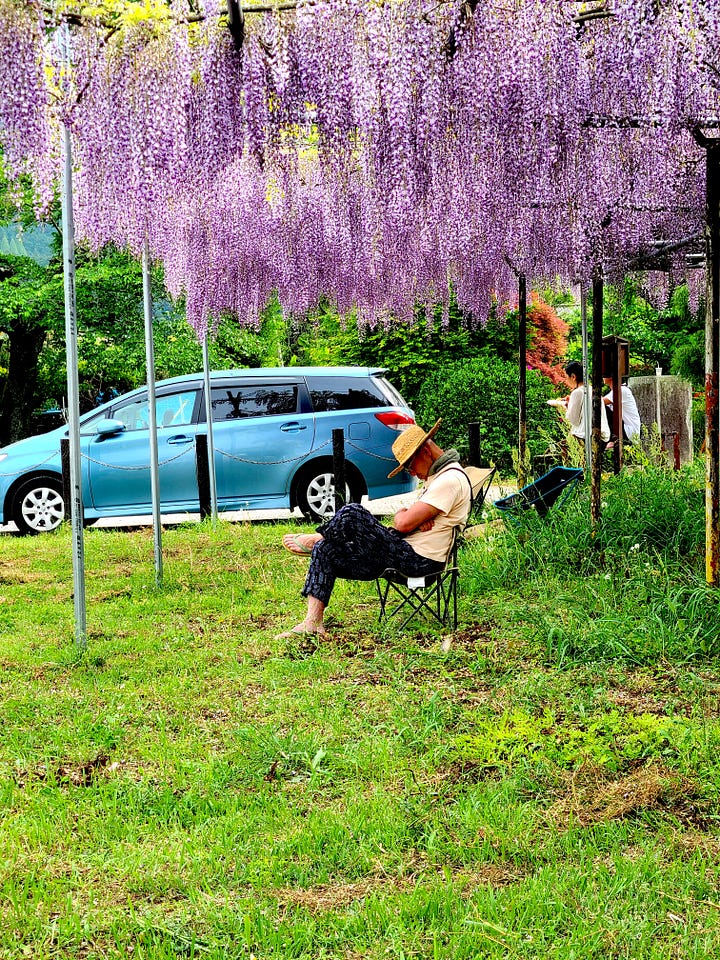
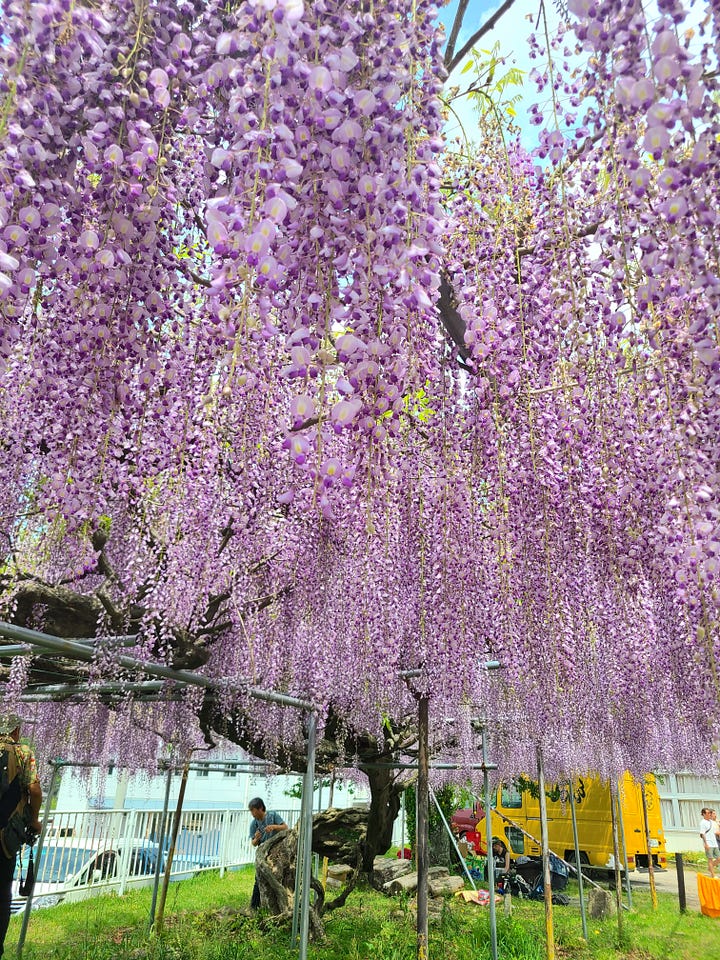
The festival was held at Asahi Satyoama Elementary school in Ishioka City. Similarly to this post, this elementary school is abandoned, but the local residents continue to use it to suit their needs. According to google, they call this now the “Rural Life experience facility.”
Like what the instagram account said, there were many booths selling various herbal things, things made from hemp, handcraft art work made out of natural materials, massage therapy counters, organic goods, and naturally hand dyed work.
Of course, Gocoo performed and the crowd went wild. Many of the Tawoo people came to support and perform for certain pieces. I’ll never get tired seeing how they can transform a hot, sleepy crowd into smiling dancers. Perhaps that’s also witchy.
Following, there were things like a procession with taiko by the locals, yukata, mochi pounding, bon odori, rikshaw rides, and even a phallic mikoshi for locals to ride on as they shouted “wasshoi!”

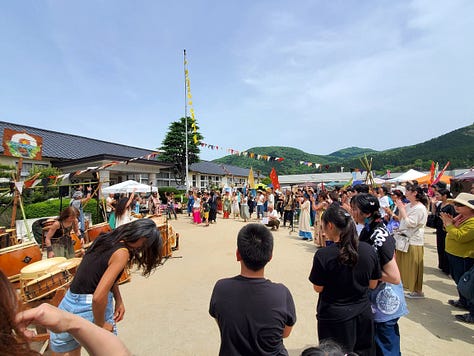
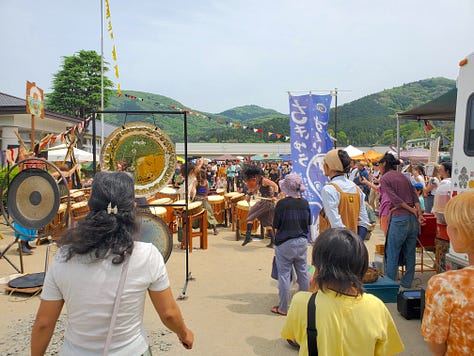
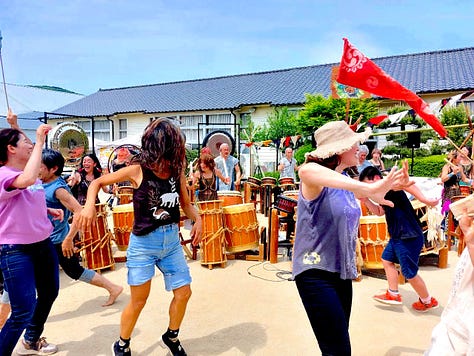
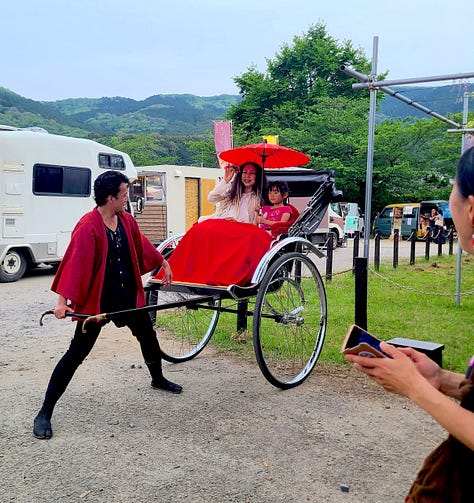
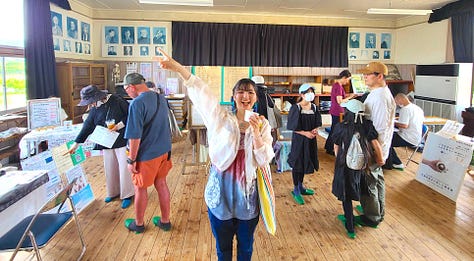
Comparing this festival
There was a festival with a similar vibe in February in Saitama at Takedera (temple) called the “1000 year festival” that’s ironically new. It featured a phallic mikoshi, local food, mochi pounding, a local Chichibu yatai bayashi taiko group, and of course, Gocoo! The creator of this festival (who was also at the Festival of Witches) had a very interesting speech about his personal life and questioned how you define “ancient,” “tradition,” and “matsuri?” Both of these include Japanese culture, traditions, and activities to uphold the same spirit. And who decides legitimacy?
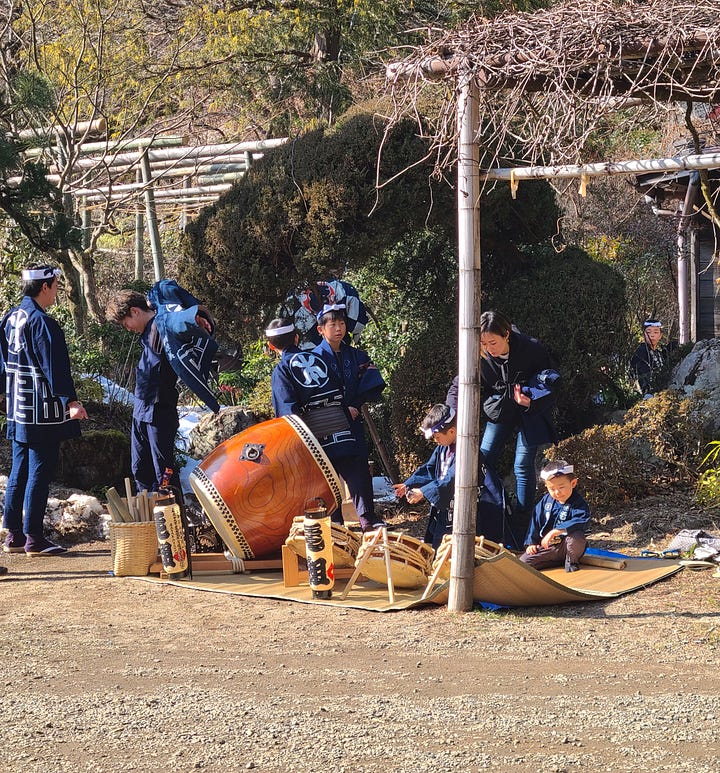
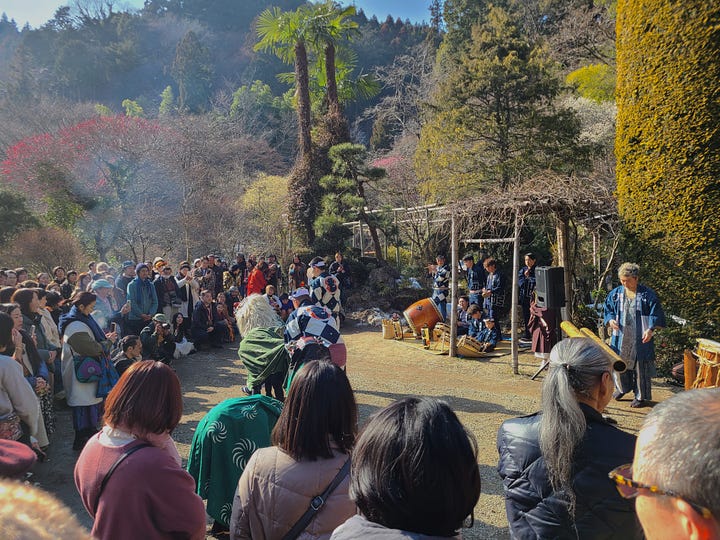
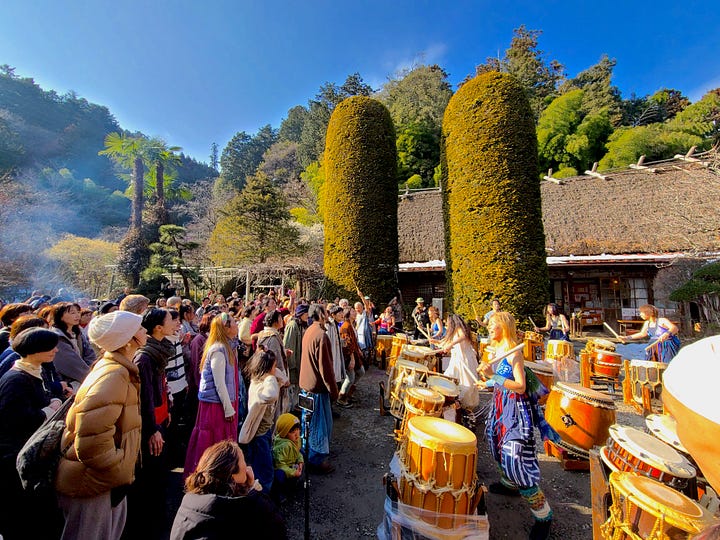
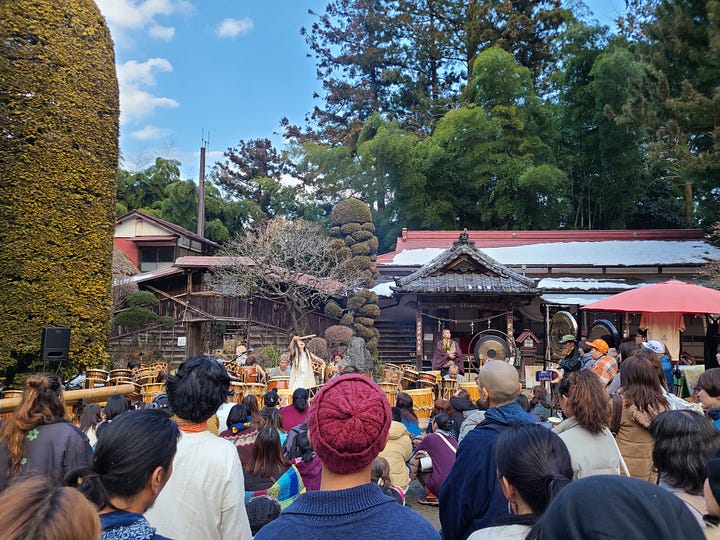
Welp, for the sake of this post, it’s me! (Jokes, people).
Pushing forward
Looking at the location of some of Gocoo’s performances and some of my other previous posts reveal a connection to areas experiencing depopulation, who in response, change with the times. Although places like Tokyo and Kyoto are extremely crowded, areas farther away are shutting down schools due to lack of youth, and to the extreme, becoming fully abandoned towns. Some townspeople turn this into an opportunity to make their abandoned schools into community spaces for the people still there, a school to teach something practical, or fill it with scarecrows resembling what the town once was in memoriam.
The appearance of matsuri change to suit the needs and include the people there today, or to attract that people that have moved away. Things like the contagious ancient sounding yet groovy beats of Gocoo and the specific spirit that the members bring also helps attract people.
So why am I writing about all of this now?
I wanted to be in Chicago this weekend (July 27-29, 2024) for the 67th annual Midwest Buddhist Temple Ginza Holiday Festival, something that my grandparents once participated in. After living about 3 stops away from Ginza in Tokyo, the festival’s name is a bit funny to me, but the festival spirit is ultimately the same as what I saw in Japan. Small towns, big cities, traditional, old, new, modern, and questionable matsuri, well perhaps they aren’t too different. Of course approach, degree, and scale may vary drastically, but they all require teamwork, figuring out how to continue legacy, meaning, and teachings, how to include the next generation, and how to bring people together safely. What matters is intention. Even the new ones that are brought together by locals who are trying to continue legacies and spirits that maybe haven’t had a space or people willing to give it a chance.
Who would’ve thought that my love of festivals in Japan would make me want to return to Chicago.
Takeaway:
I’m extremely grateful to Gocoo for bringing me along to their festival performances. Although I was skeptical at first and admittedly questioned some of these festivals’ legitimacy, these feelings revealed my naivety and narrow mindedness. All local matsuri have taught me about simple human needs of spirit, community, and teamwork. But most importantly, seeing Tawoo people dancing unabashedly and wasted ojisans in fundoshi having the time of their life reminds me to live a little and enjoy life ;)
But now I’m in America. And here, I picture festivals that are related to capitalism, not culture and community. So, is the answer to only go to Japanese and Japanese American festivals and bon odori? No… and please note I’m oversimplifying, but I do struggle with finding ideas of festivals that relate to history. Maybe when looking at it differently, such as removing the word “festival,” the possibility expands, and maybe the meaning also needs to change. Think like local neighborhoods gatherings, holiday parades, art fairs, I mean, when was the last time you actually checked in with your neighbor? Perhaps that’s what’s important in America.
OH AND FOOD:
Unrelated to matsuri, yakiniku and beer with Nori san! ごちそうさまでした!



